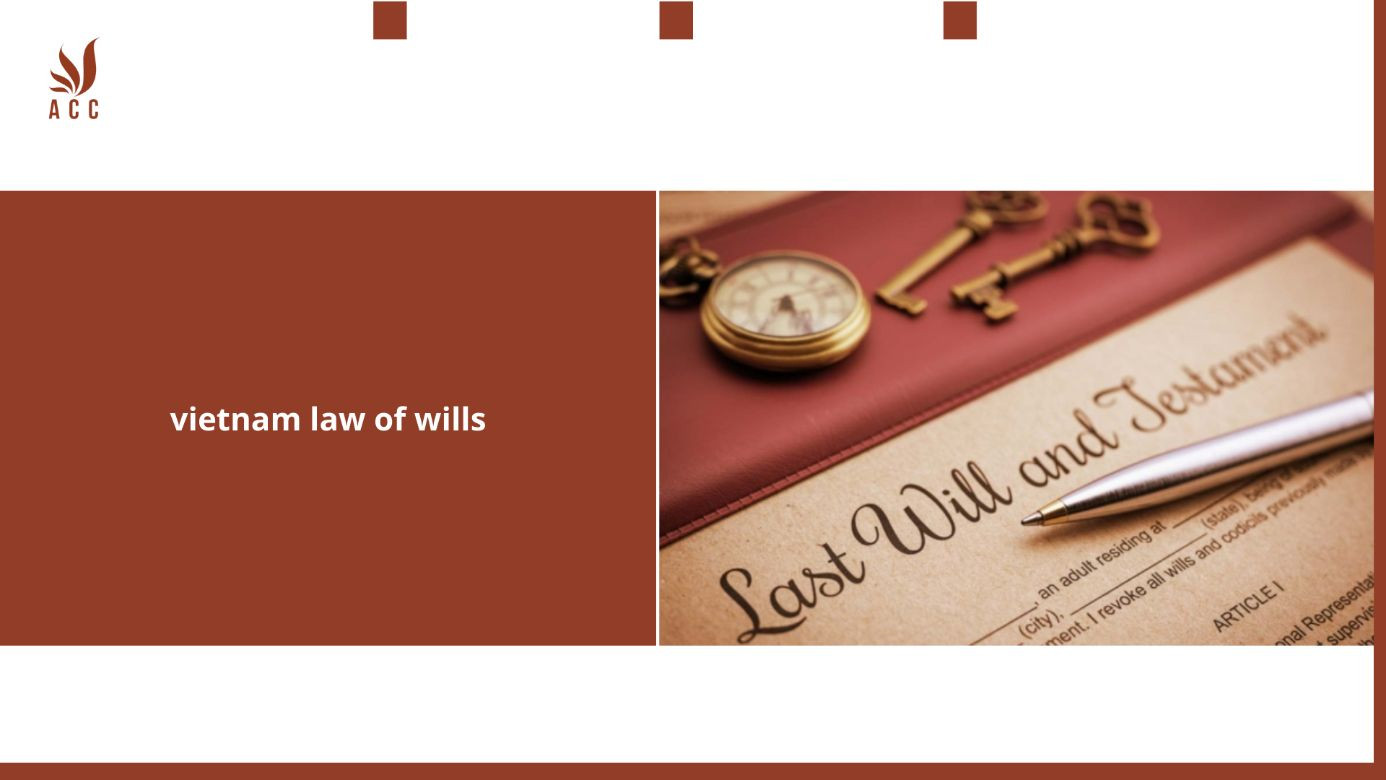Here are some key points regarding wills under Vietnamese law:
1. Formal Requirements:
Wills in Vietnam must meet specific formal requirements to be considered valid. These include:
The will must be in writing, either handwritten or typed.
The testator (the person creating the will) must sign and date the will.
Two witnesses are required to sign the will as well. These witnesses should be competent individuals who are not beneficiaries named in the will.

2. Age and Capacity:
The testator must be at least 18 years old and possess full civil capacity. This means they must have the mental capacity to understand the nature and consequences of their decisions.
3. Executor or Administrator:
The testator may appoint an executor or administrator in the will to carry out the provisions of the will and ensure its proper execution.
4. Beneficiary Designation:
The will specifies the beneficiaries—the individuals or entities who will inherit the testator's assets and property. Specific bequests (gifts) and instructions for asset distribution should be included.
5. Revocability:
Testators have the right to amend, update, or revoke their wills at any time as long as they have the requisite mental capacity. A subsequent will typically revokes any previous wills.
6. Contingency Provisions:
Wills may include contingency provisions to address various scenarios, such as naming alternative beneficiaries if primary beneficiaries are unable to inherit or predecease the testator.
7. Probate Process:
After the testator's death, the will goes through the probate process to confirm its validity, settle debts and taxes, and oversee asset distribution. The court will issue a certificate of inheritance, which serves as evidence of the right to inherit.
8. When using ACC Law Firm's testament, entrepreneurs will receive
When using ACC Law Firm's testament, entrepreneurs will receive professional legal advice and assistance in drafting a comprehensive and legally binding will that reflects their specific business needs and objectives. The testament will ensure the smooth transition of their business assets and help protect their interests and those of their beneficiaries. Additionally, entrepreneurs will have access to ongoing support and guidance from experienced attorneys who specialize in estate planning for entrepreneurs.
8. Q&A
Q1: What is the legal framework for wills in Vietnam?
A1: Wills in Vietnam are governed by the Law on Inheritance, which outlines the legal requirements and procedures for creating and executing wills. The Law on Inheritance was last updated in 2014 and provides the legal framework for wills, inheritance, and the distribution of assets in Vietnam.
Q2: Who can create a will in Vietnam, and what are the requirements for a valid will?
A2: In Vietnam, any person who has full capacity for civil acts can create a will. To be valid, a will must meet the following requirements:
- Be made in writing.
- Be signed by the testator (the person making the will) or another person authorized by the testator in the presence of two witnesses.
- Be clear and express the testator's wishes regarding the distribution of assets.
- Not include any conditions that are impossible or contrary to law or ethics.
Q3: Can beneficiaries be witnesses to a will in Vietnam?
A3: No, beneficiaries cannot be witnesses to a will in Vietnam. The Law on Inheritance prohibits beneficiaries from acting as witnesses to the will. Witnesses should be impartial individuals who are not beneficiaries, spouses, or relatives up to the fourth degree of kinship of the testator or other beneficiaries.
Q4: Can a will in Vietnam be contested, and what are the grounds for contestation?
A4: Yes, a will in Vietnam can be contested under certain circumstances. Common grounds for contestation include:
- Allegations of forgery or fraud in the creation or execution of the will.
- Claims that the testator lacked the mental capacity to make a will at the time of creation.
- Disputes regarding the authenticity of the testator's signature.
- Accusations of undue influence or coercion on the part of beneficiaries or other parties.
Nội dung bài viết:






Bình luận